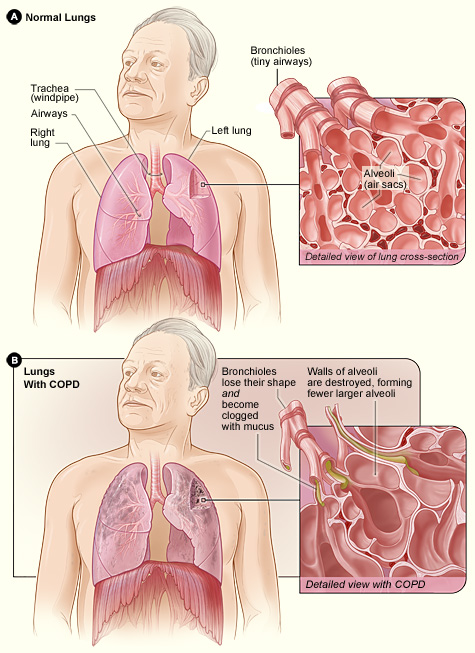Chronic Obstructive Pulmonary Disease (COPD) is a serious respiratory condition that makes it difficult to breath. People living with COPD can face complications if they suffer respiratory infections. Fortunately, some of the most severe infectious are preventable.
 “People living with COPD, whose respiratory system is already badly affected, should avoid the risks of further decreasing their breathing capacity and suffering exacerbations,” says Catherine Hartmann, Secretary General of the European COPD Coalition (ECC).
“People living with COPD, whose respiratory system is already badly affected, should avoid the risks of further decreasing their breathing capacity and suffering exacerbations,” says Catherine Hartmann, Secretary General of the European COPD Coalition (ECC).
“We recommend that all COPD patients get the seasonal influenza and the pneumococcal vaccines, as vaccinations can prevent some of the infections that cause COPD exacerbations.”
Frequent exacerbations are associated with greater decline in health status, she adds. Tracheobronchial infections are involved in 50-70% of exacerbations.
“For us, vaccination is an essential part of public health, a key element to protect oneself as well as the community,” according to the COPD Coalition chief.
She says vaccine uptake in people with COPD remains too low. “We must increase confidence and education in the essential role of vaccination to overcome this barrier,” Hartmann says.
People with chronic lung diseases are significantly more susceptible to influenza and are more likely to be hospitalised if infected. Vaccination can reduce hospitalisations by up to 52% and reduce all-cause mortality by 70%, by some estimates.
What is COPD?
COPD is a serious disease affecting up to 10% of European adults. It is a long-term, irreversible lung and airway disease which causes wheezing, shortness of breath, chest tightness and other symptoms. This makes it hard to move air in an out of the lungs.

The main cause of COPD is smoking. Long-term exposure to air pollution, chemical fumes or dust may contribute to COPD, while a small proportion of cases are caused by a genetic disorder.
Find out more from the COPD Coalition.
Read more:




